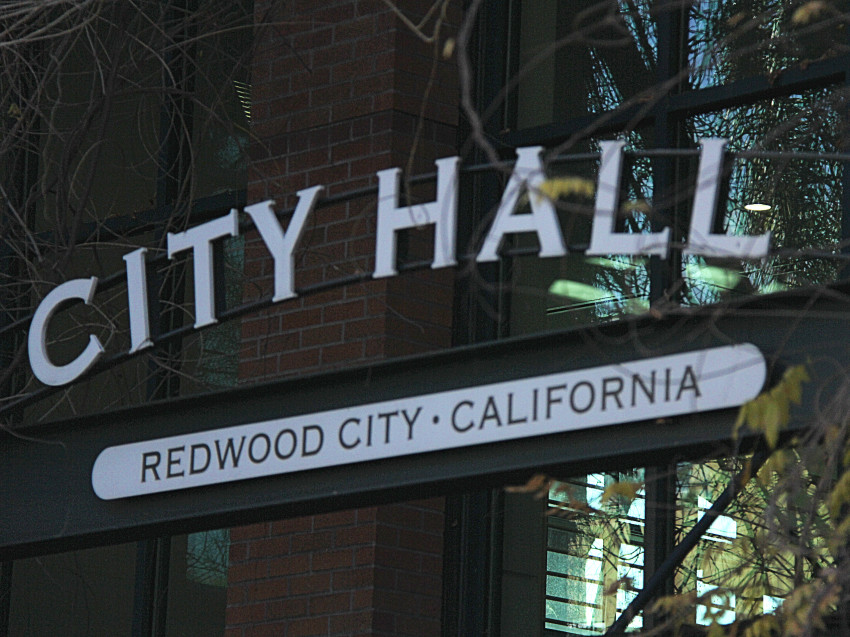Redwood City is planning cuts to all city departments, including $4.9 million in public safety reductions that will sideline a fire engine and leave nine vacant police officer positions unfilled, as the city grapples with the COVID economic fallout. The city doesn’t expect its revenues to return to fiscal year 2019-2020 levels for at least five years.
Revenues this fiscal year beginning July 1 are projected to fall by 8.1 percent or $13.1 million compared to last fiscal year, City Manager Melissa Stevenson Diaz said Friday.
With a sluggish economic recovery projected, added to already-anticipated increases in pension and retiree health obligations over the next decade, the city is expecting annual deficits of $7-13 million “for the foreseeable future,” city officials said.
That means additional steps will be needed to reduce costs and seek new revenues.
“There is a lot of work ahead to rethink what services we provide,” Diaz said, adding the solution “will involve employees” and the reimagining of the city’s current service models.
Savings measures proposed in the revised fiscal year 2020-2021 budget include temporarily sidelining the Redwood Fire Department’s Engine 9, which operates out of Station 9 at 755 Marshall St., and leaving vacant a fire training captain position.
“The reason we chose Engine 9 is there is another fire apparatus at that station (Truck 9), so there is an option to have a fire truck respond,” Diaz said. “It’s a busy station so that will put more demand on that fire truck.”
Halting Engine 9 is expected to increase the overall response time to emergency calls by six seconds, said Diaz, adding that the average response time is currently in the five to six minute range, with variations depending on location.
The city is also proposing no increases to the current staffing level at the Police Department, leaving nine vacant police officer positions unfilled, and hiring freezes in multiple other departments, including Parks, Recreation & Community Services, Library and Community Development.
The daunting budget scenario was anticipated this past summer, but the city opted to withhold making major service decisions until the pandemic’s impacts became clearer. The revised budget seeks an additional $7.7 million in spending reductions from the budget adopted in the summer, the city said. At that time, and still now, the city’s endured criticism for not doing enough to heed public calls to “defund police,” or in other words re-imagine the city’s public safety model following the death of George Floyd while in Minneapolis police custody. The city also faced controversy this past summer over the approval of pay hikes for its top officials.
Diaz says efforts to re-imagine a more equitable approach to public safety– and to all departments — remain underway despite the projected deficits. Over the past few months, the city launched a number strategies to reform police, including endorsing the Obama Foundation Mayor’s Pledge to review its policing policies. Multiple community dialogue sessions were held on the topic from July through last month.
As part of the revised budget proposal, the city plans to use a portion of $3 million in one-time funding to sponsor a pilot program that will pair county mental health clinicians with police officers when responding to certain calls for service. Eventually, Diaz said, the city hopes the program will evolve to where only mental health clinicians will respond to certain calls.
The $3 million in one-time funding will also be used to fund a new position of Equity and Empowerment Officer to lead development of the Equity Workplan, which aims to address equity and diversity in city departments and the community. A city council committee focusing on equity issues and police chief advisory committee are also in the works.
It’s unclear whether such steps will be enough to appease more dramatic reforms sought by proponents of the defund police movement. Diaz says she values their passionate advocacy and hopes for patience as the city works with the community toward solutions amid projected budget deficits.
She says the revised budget for this fiscal year aims to address the city’s financial health “while striving to address critical community needs in light of the COVID-19 pandemic, to advance the City Council’s top priorities of housing, transportation, and children and youth, and to focus on equity and sustainability.”
Diaz added, “The work to reimagine city services has begun. It cannot be rushed; it requires analysis, communication, and careful consideration to ensure new models provide the best possible service, while avoiding unforeseen consequences.”






